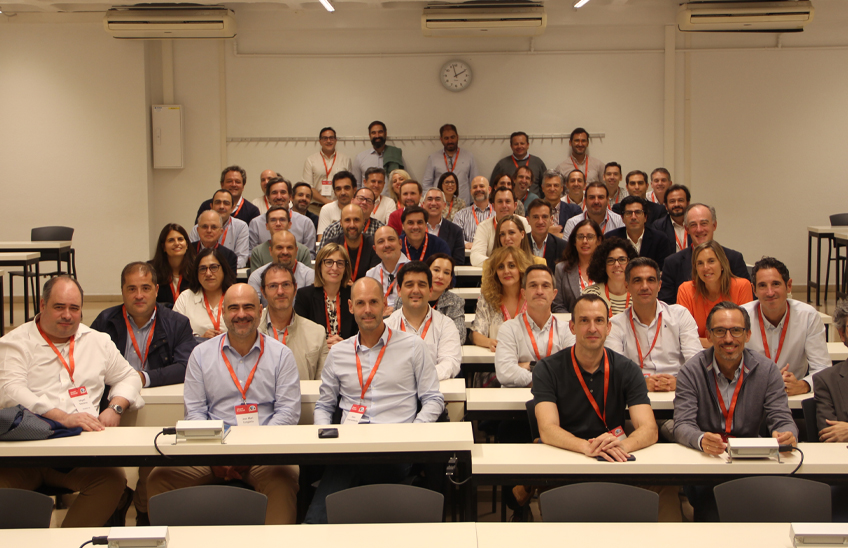Jordi Rodríguez Virgili: "Polarization demands political positioning, not critical thinking".
About 30 alumni attended a meeting organized by the board Alumni of Alava.

13 | 11 | 2023
On November 9, around thirty alumni attended the meeting Alumni of Vitoria. The event, organized by the board Alumni of the city of Alava, included a session on polarization in the Spanish political scenario given by the professor of political communication, Jordi Rodríguez Virgili (COM'96 | PhD'02). The meeting took place at the high school Official Industrial Engineers of Alava, and was attended by Íñigo Gutiérrez (TECNUN'98 | PhD'04), director of Alumni-University of Navarra, and members of the board Alumni.
Oriol Caballé (ECO'02), president of the board Alumni of Álava, was in charge of welcoming the alumni, and encouraging them to continue at contact with the University through the newsletters or the WhatsApp groups of the different territorial groups.
This was followed by the session"Polarization in the current political scenario" at position by Rodríguez Virgili. The professor explained that there are three types of polarization, ideological, affective and social or everyday polarization, and that all three have increased in Spain in recent years. Society needs a certain ideological polarization for a healthy discussion to develop and generate new ideas.
Virgili pointed out, however, that affective polarization, which responds to identity and emotional issues, is negative because it hinders dialogue and agreement. The greater attachment/adhesion to the leaders and parties with which we feel identified and the greater hostility/rejection towards those with whom we do not share this affinity establishes an emotional separation that hinders social coexistence. For the expert, this is what has caused "a polarization that demands political positioning and not critical thinking". However, more worrying would be the social or daily polarization which, for the moment, is the one that affects our country the least.
To close the session, the speaker pointed out some possible solutions such as "maintaining a 'varied informationper diem expenses ' or dialoguing with people who have different ideas". After a lively discussion, the meeting ended with a Spanish wine in which attendees were able to get to know each other and continue talking about the contents of the session.
Alumni Territorial Boards: what are they?
The Territorial Alumni Boards are the points of connection between the University of Navarra and its alumni. They are made up, on a voluntary basis, of alumni committed to the University and are responsible for the coordination and management of activities in the different geographical areas both in Spain and abroad. You can find yours on the Alumni website in your city .
The board Alumni of Alava is composed of:
President:
- Oriol Caballé [ECO'02].
Members:
- José Andrés Noguera [ARQ'99].
- Jordi Caballé [TECNUN'95] Irene Valle [ECO'02
- Irene Valle [ECO'02] Pablo Valle [ECO'05
- Pablo Valle [ECO'05] Pablo Valle [ECO'05
You can be in contact with the alumni of Álava through the group of Whatsapp.

